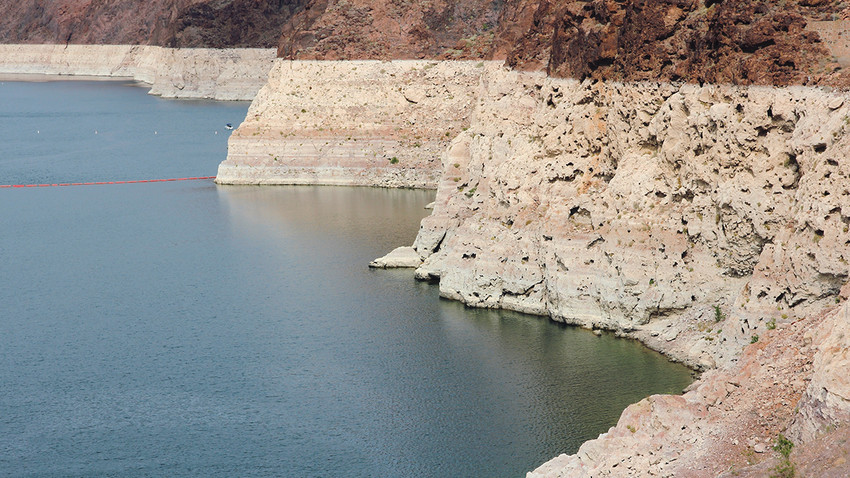
When the Reservoirs Run Out
As the drought tightens its grip on the western states here in the U.S., the dramatic plunge of reservoir water levels is stunning. If you haven’t seen the before-and-after NASA satellite photographs of Lake Mead (“the largest reservoir in the United States [that] supplies water to millions of people across seven states, tribal lands, and northern Mexico”), take a moment to check it out for yourself (earthobservatory.nasa.gov/images/150111/lake-mead-keeps-dropping).
Lake Mead water levels now stand “at their lowest since April 1937, when the reservoir was still being filled for the first time.” By mid-July the reservoir “was filled to just 27 percent of capacity” (ibid). Wow!
But along with this very public regional crisis, the plunging water levels have also exposed private pain and heartache. Already at Lake Mead “a fourth set of human remains has been found at the shrinking reservoir . . . as the drought gripping the western US continues to blaze and sends its water levels plunging” (www.theguardian.com/us-news/2022/aug/07/lake-mead-human-remains-found-drought). Who were these victims, what happened, and what about their families?—questions the authorities are yet unable to answer.
But when it comes to water levels, there is one profound reversal of today’s drought headlines worth remembering. Consider the promise embedded in the ancient prophet’s prayer: “You will again have compassion on us; You will tread our sins underfoot and hurl all our iniquities into the depths of the sea” (Micah of 7:19).
The ancients considered nothing on earth deeper than the sea. And into its dark and murky depths, our divine Savior is depicted, symbolically hurling “all our iniquities” where they disappear never to be seen again. No chance dropping sea levels will ever expose the private sins we have confessed to Him. No chance some sea-diving bounty hunter will come across their remains.
No, no—“all our iniquities” are buried at sea, sunk to the bottom by Almighty God, where not even He would dredge them up again to condemn us. No wonder Micah exclaims: “Who is a God like you, who pardons sin and forgives the transgression of the remnant of His inheritance? You do not stay angry forever but delight to show mercy” (Micah 7:18).
And if not even God Himself would dredge them up, why should we punish ourselves by recalling the very sins we have asked Him to bury? Do we really believe reviewing past sins God has buried somehow proves our penitence or double-checks His pardon?
And while we’re at it, why should we allow others to torment us with those transgressions not even Jesus would recall? If a “friend” or a spouse or even an adversary hurls our past against us, may the Spirit of God bring quickly to mind the assurance our failures have already been hurled into the depths of God’s eternal sea, never to be heard from again. So “get behind me, Satan.”
Then I say we let these drought-stricken headlines be our quiet reminder that God’s great reservoir of grace will never, ever be diminished—not by even a single drop, not even by a single sin.